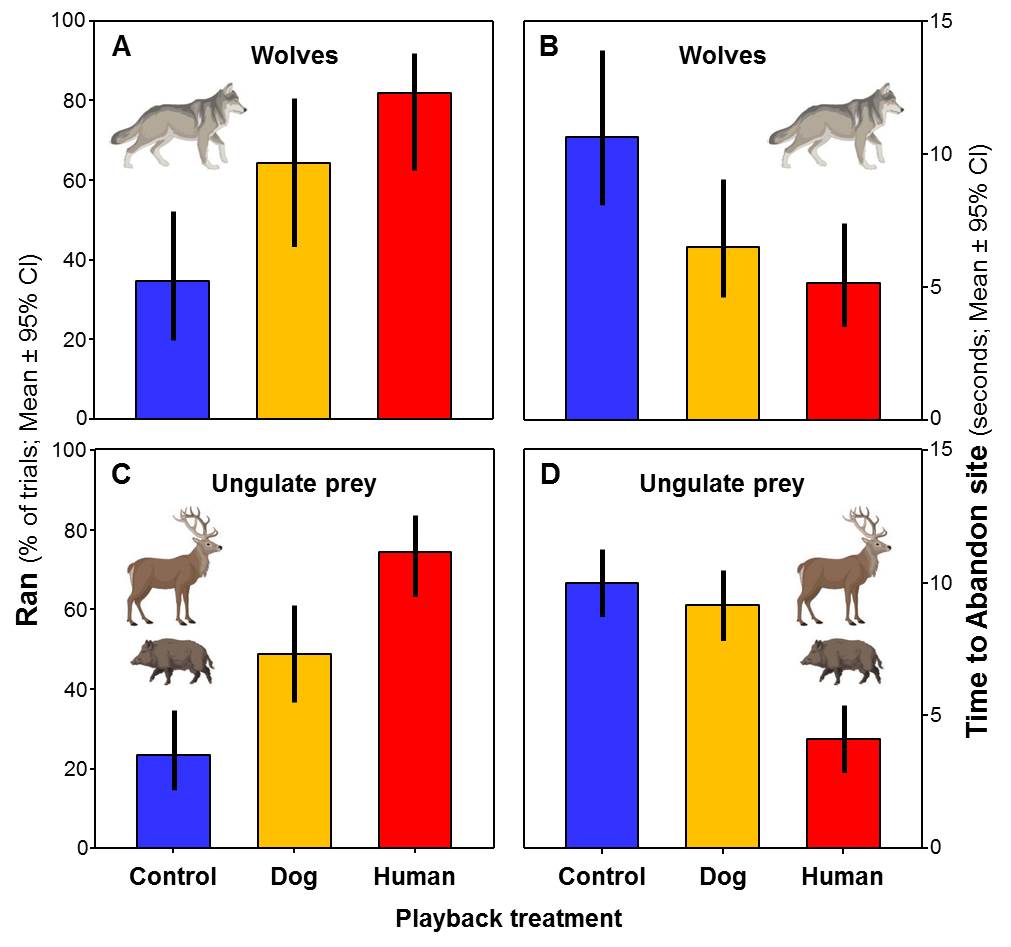

| Principal
Investigators |
|
 Dr. Liana Zanette, Professor |
 Dr. Michael Clinchy |
Current Students |
|
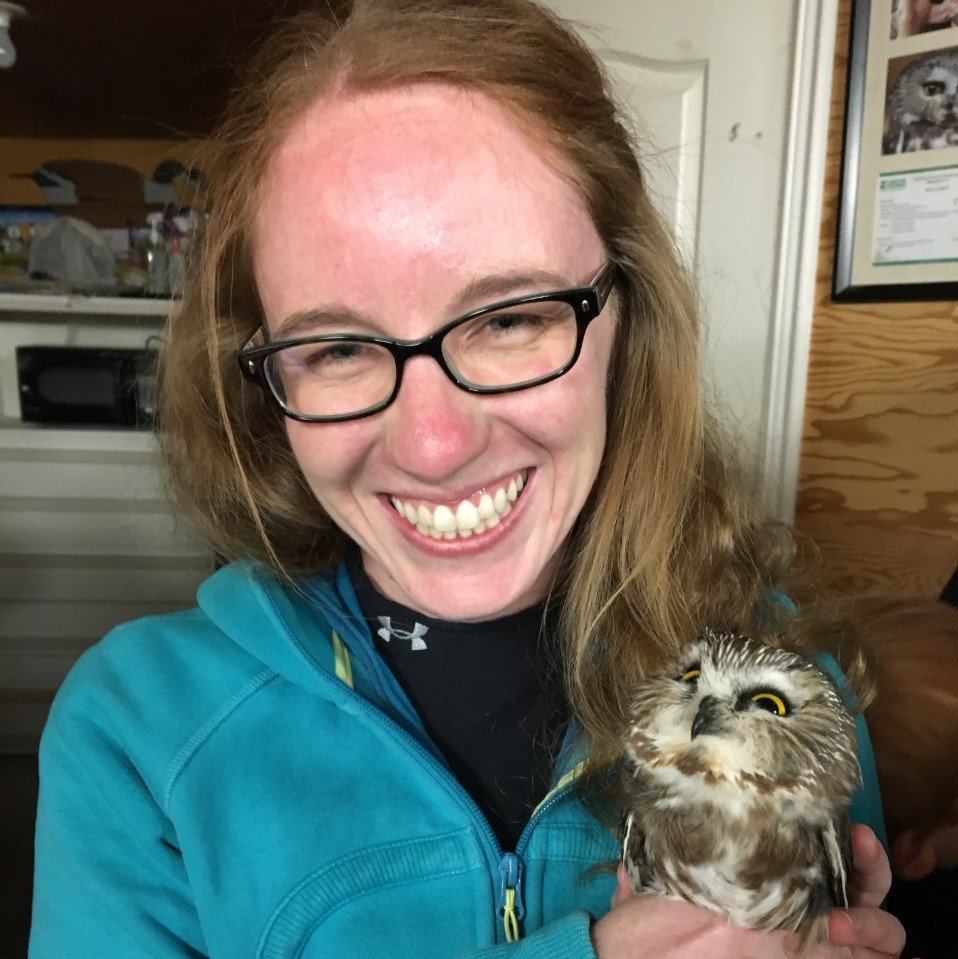 Lauren Witterick, PhD Candidate (& MSc Alumni) Lauren's research looks at the enduring effects of fear on the brain and behaviour in wildlife, looking at captive, semi-natural, and free-living animals. In the brain, she measures enduring effects of fear on neurogenesis, activation, and neuron structure in regions involved in fear processing, following methodology used in laboratory studies of post-traumatic stress disorder. [LFP 2019] [CTV 2019] |
|
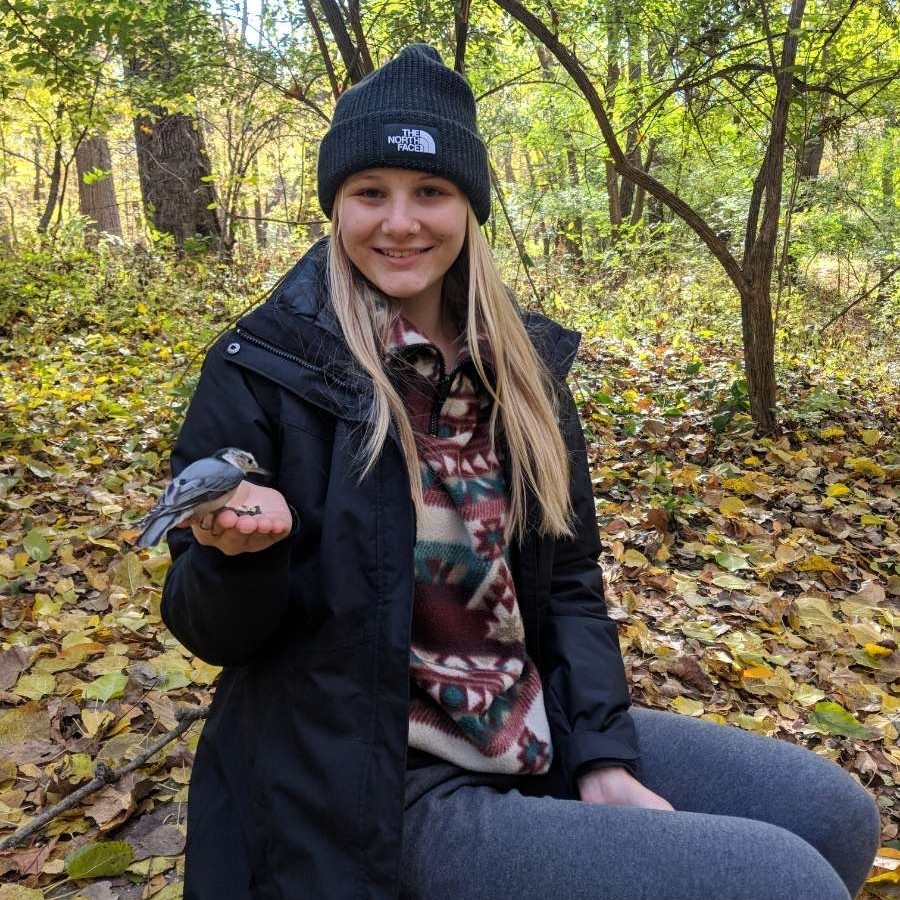 Brielle Comartin, BSc Honours Thesis Student Brielle is investigating the long-term effects of perceived predation risk on neurogenesis in black-capped chickadees in three fear processing regions in the avian brain. She is using immunohistochemistry procedures to label the expression of proliferating cell nuclear antigen. |
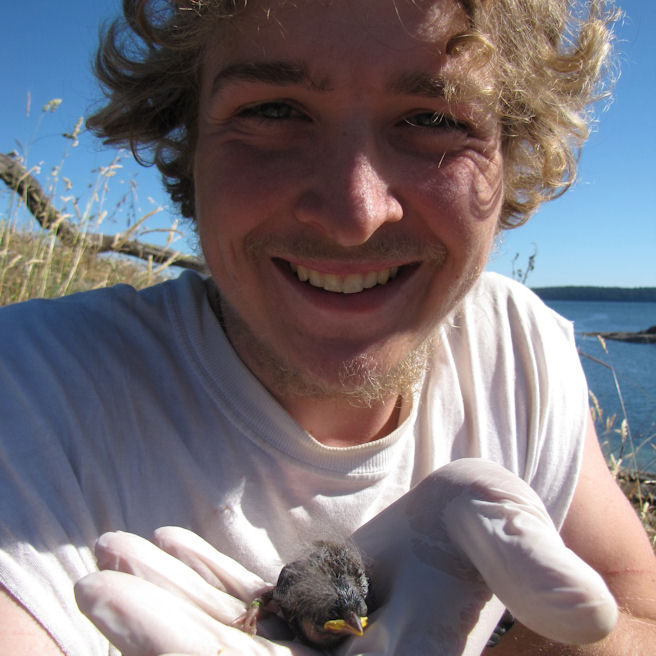 Marek Allen (PhD) Marek expanded upon our previous findings to focus on how fear affects prey population dynamics through effects on juvenile condition, behaviour and survival. Using radio telemetry, he monitored the fate of juvenile song sparrows at our long-term sites on the B.C. Gulf Islands during multiple breeding seasons, and then returned next spring each year to find juveniles that survived to become adults. [Thesis] [Pub 2011] [Pub 2018] |
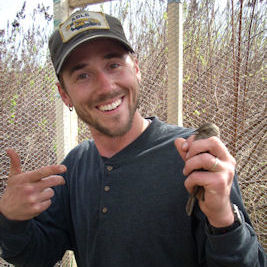 David Swan (PhD) David established that brown-headed cowbirds are a major nest 'predator' of songbirds. He used field data and lab experiments to test whether this killing by cowbirds facilitates their parasitism of hosts. [Pub 2015] |
Justin Suraci (PhD) Justin's PhD focused on the ecological consequences of the loss of large carnivores and the fear they inspire in their prey, experimentally demonstrating that fear alone can cause a trophic cascade. [Pubs with Lab: 2014a, 2014b, 2016, 2017a, 2017b, 2017c, 2017d, 2017e, 2019a, 2019b] |
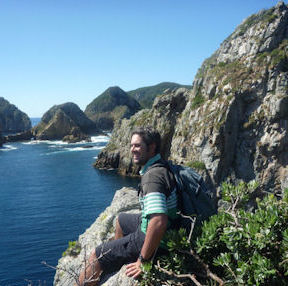 Michael Anderson (Post-Doc) Michael's research addressed whether the different conditions experienced by nestling brown-headed cowbirds reared in different host nests have permanent effects on their development that are measurable in adulthood. |
 Nikita Frizzelle Nikita used ABR systems to investigate antipredator behaviours in response to human presence and hunting intensity in 30 safari mammal species (such as elephants, giraffes, leopards, and impala) in the Greater Kruger National Park, South Africa. [Thesis] [CTV 2021] |
Badru Mugerwa Badru used Automated Behavioural Response (ABR) systems in Uganda's Bwindi Imprenetrable National Park to investigate the efficacy of using the fear responses of wildlife to hunting sounds (e.g. dogs barking and people speaking) to gauge the threat illegal hunting (poaching) poses to wildlife in tropical ecosystems. [Pub 2017] |
 Lauren Witterick Lauren looked at the long term effects of predator playbacks on the brain, in particular, at changes in protein expression and dendritic morphology. She conducted predation risk manipulations both in black-capped chickadees in acoustic isolation and in brown-headed cowbirds in large outdoor aviaries. [Pub 2019] [LFP 2019] [CTV 2019] |
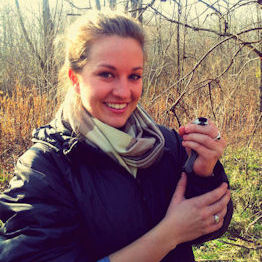 Emma Hobbs Emma tested the effect of predator playbacks on immediate early gene (IEG) expression in the nucleus taeniae of the amygdala in chickadees, to corroborate that this is the “fear centre” in the avian brain. [Pub 2019] |
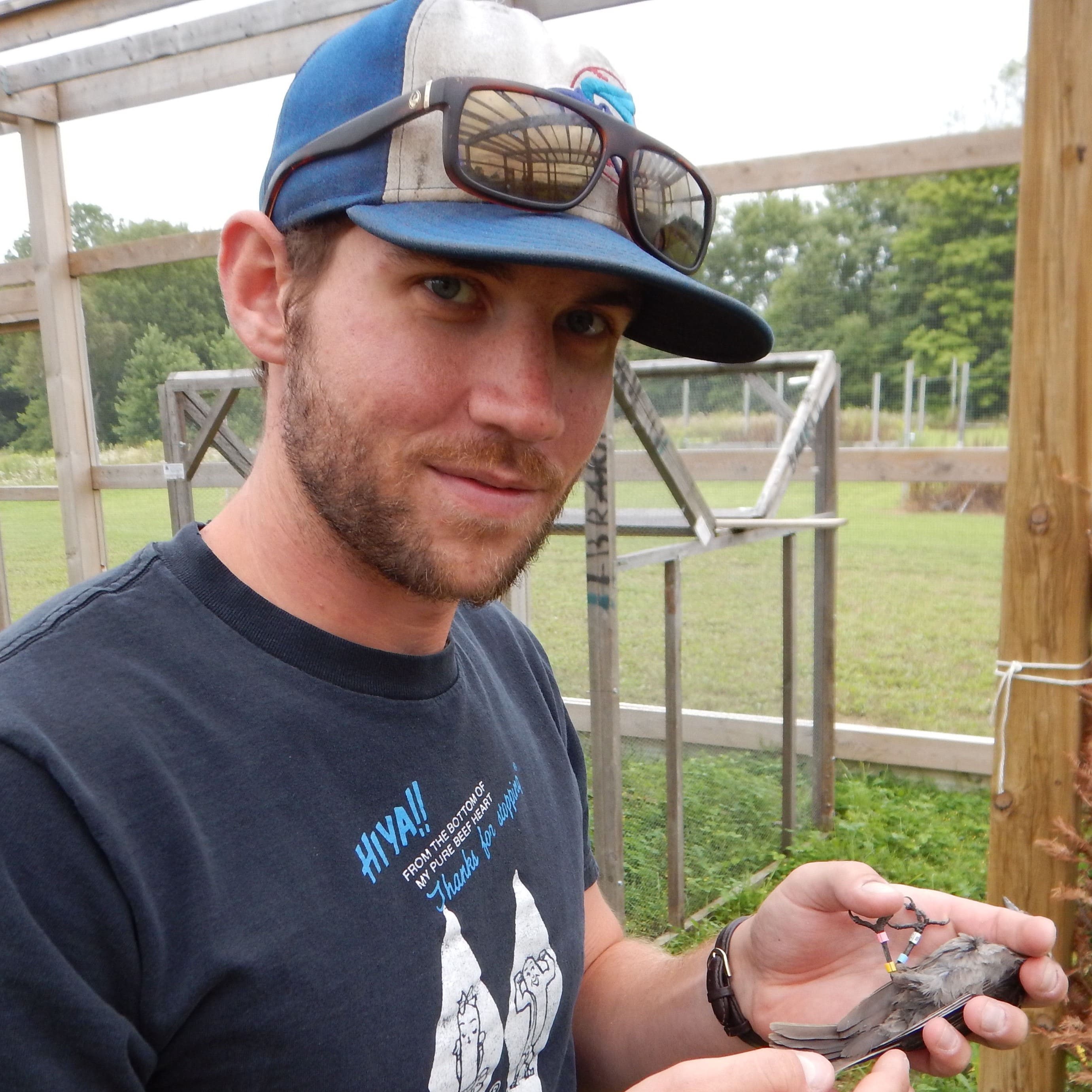 Ben Walters Ben investigated how brown-headed cowbirds respond physiologically to the increased risk of predation and tested the assumption that predator-induced mass change will affect various measures of flight performance. [Pub 2017] |
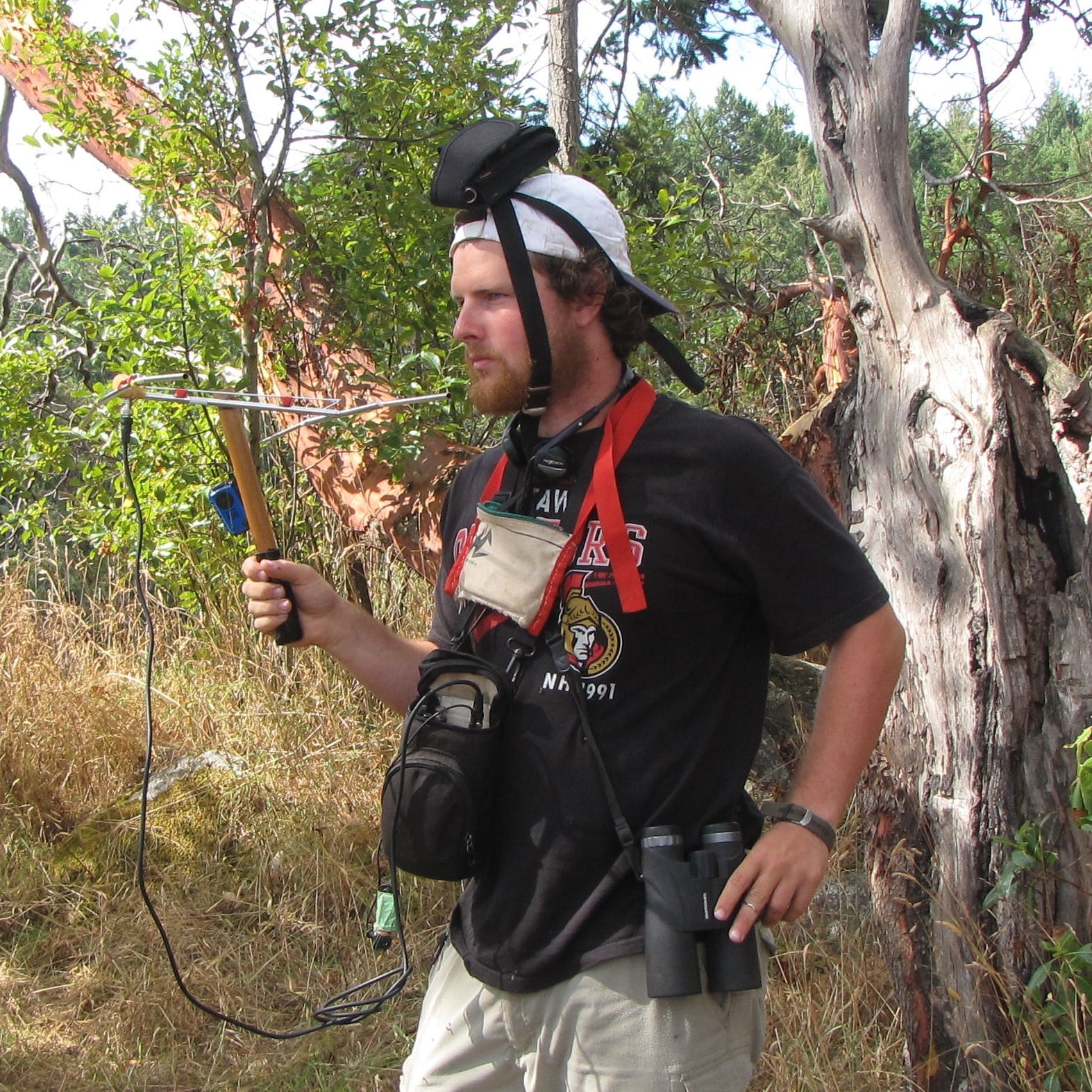 Blair Dudeck Blair experimentally tested how fear of predators affects parental care of juveniles and the impact this has on juvenile survival. [Pub 2018] |
 Michelle Bondy Michelle evaluated whether inter-population differences in predation rate may lead to inter-population differences in genetic diversity. [Thesis] |
 Tin Nok Natalie Cheng Natalie experimentally manipulated fear during the breeding season and sampled courtship and mating behaviour in both male and female brown-headed cowbirds to determine whether and how the sexes differ in their responses to predators. [Pub 2017] |
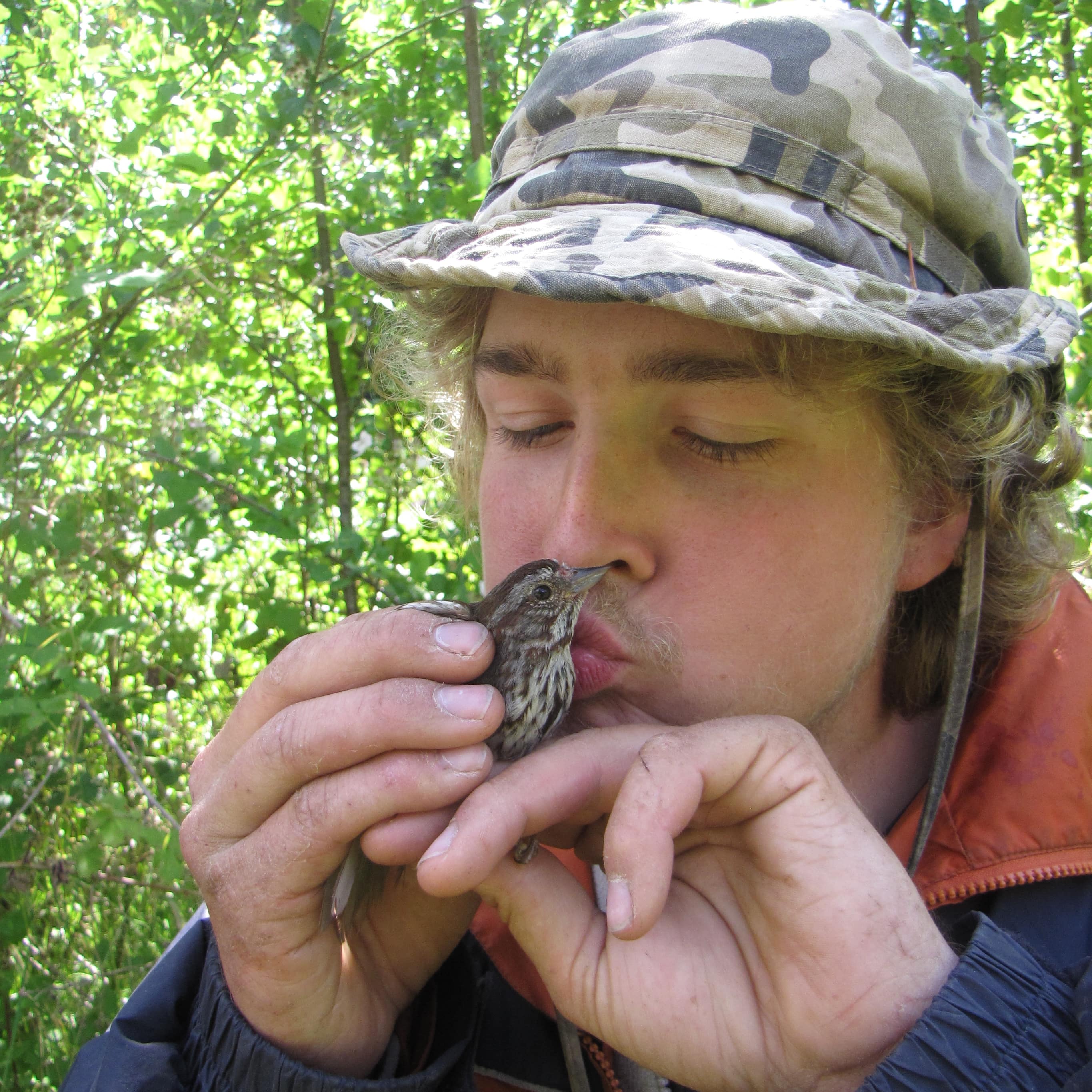 Marek Allen Marek experimentally tested how fear effects on parental care impact prey demography. [Pub 2011] [Pub 2018] |
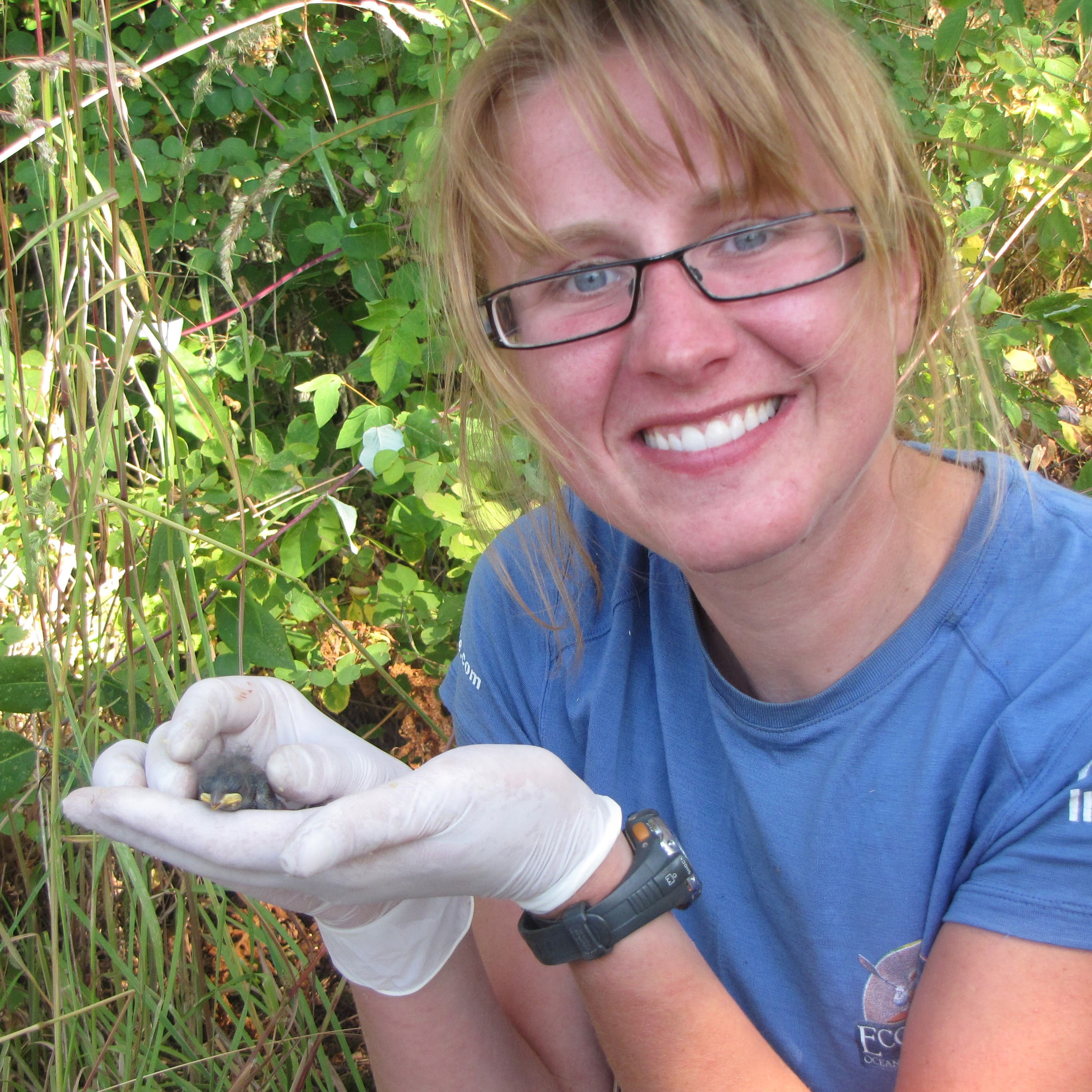 Aija White Aija tested whether fear itself affects the number of offspring song sparrows produce per year. [Pub 2011] |
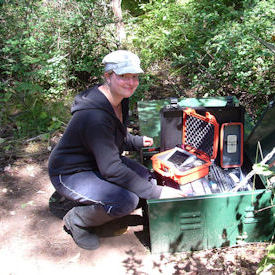 Melanie Groves Melanie analyzed video data collected using wildlife video surveillance systems we developed, evaluating whether parental care during brood-rearing differs between sites differing in nest predation risk. [Thesis] |
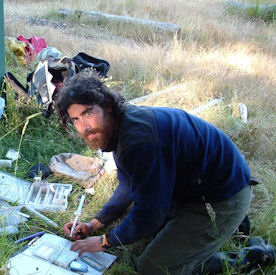 Marc Travers Marc conducted a large-scale experiment at our long-term study sites on the B.C. Gulf Islands that was the first to demonstrate that a parent's experience of losing young to a predator reduces the parent's subsequent reproduction. He demonstrated that predators can affect the birth rate of prey, and we later used stable isotopes to show that this was associated with fear effects on food use. [Pubs 2010 & 2013] |
 Rob DeCaire Rob tested whether host nestling mortality in nests parasitized by brown-headed cowbirds is solely due to the cowbird nestling's being larger. [Pub 2013] |
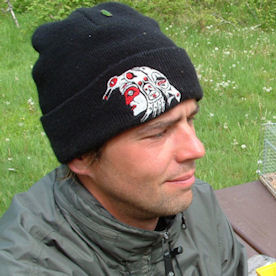 Neil Goodenough Neil collected data concerning the effect of differences in predation risk on facets of the physiological stress response in song sparrows. [Pub 2013] |
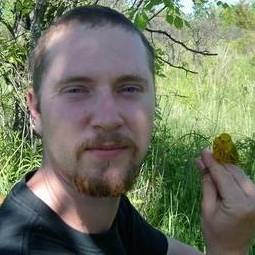 Jeremy Pfaff Jeremy's research showed that the number of songs adult male song sparrows sing is affected by the size of the song control nuclei in their brain, which Bethany Kempster's work showed is affected by food restriction during early development. [Pub 2007] |
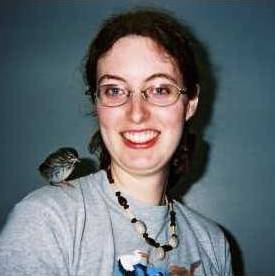 Bethany Kempster Bethany conducted a hand-rearing experiment in the lab that demonstrated that food restriction during brood-rearing has lasting adverse effects on brain development and physiological condition. [Pubs 2006 & 2007] |
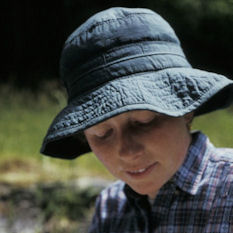 Anne Duncan-Rastogi Anne experimentally demonstrated that parental nest attendance during incubation is affected by food availability. We subsequently demonstrated that predator-induced fear has comparable effects on incubation behaviour, which Anne's work suggests is due to fear impairing parental foraging. [Pub 2006] |
 Tyler Lue Tyler investigated whether position in a herd influences fleeing behaviour in impalas when exposed to playbacks of human voices and hunting sounds. |
 Karan Malhotra Karan investigated whether sex of impalas influenced their fleeing behaviour in response to playbacks of human voices and hunting. |
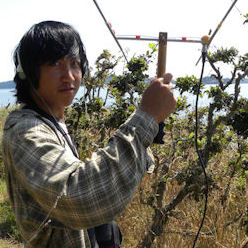 Alex Chang Alex evaluated whether early nestling condition predicts post-fledging survival months later, using radio-telemetry data he collected on B.C.’s Gulf Islands.  |
 Jocelyn Fries Jocelyn collaborated with Melanie Issett to investigate whether fear behaviour in elephants, in response to playbacks of human voices, was influenced by the sex and language of the human speaker. |
 Melanie Issett Melanie collaborated with Jocelyn Fries to investigate whether herd size, social structure, age, and sex of elephants influences their fear behaviour. |
 Taylor Hart Taylor investigated whether mammals in Bwindi Impenetrable National Park, Uganda, flee when exposed to playbacks of human voices. |
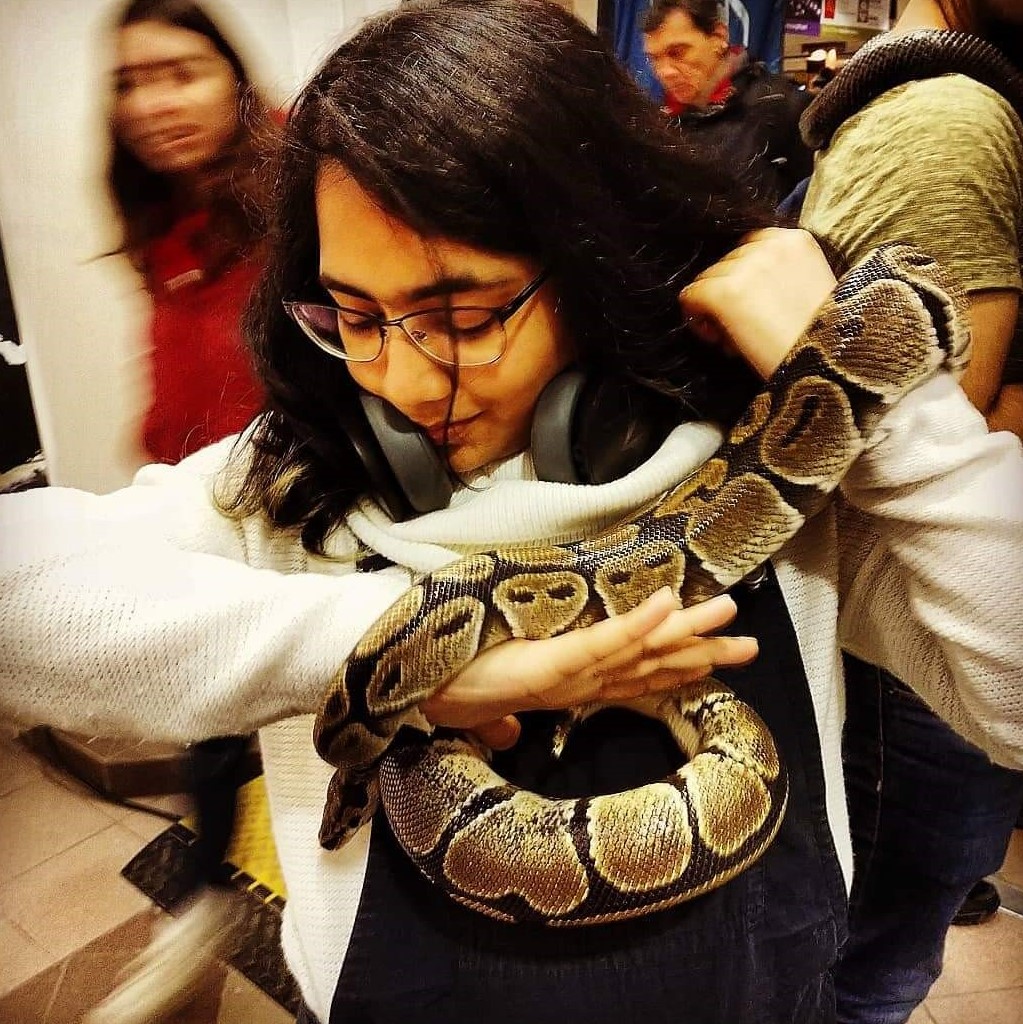 Shefali Bhatt Shefali investigated whether buffalo and hippopotamuses flee in response to playbacks of human voices and hunting sounds. |
 Julia Hrynkiewicz Julia examined the long-term effects fear of predators has on take-off behaviour and doublecortin expression in brown-headed cowbirds. |
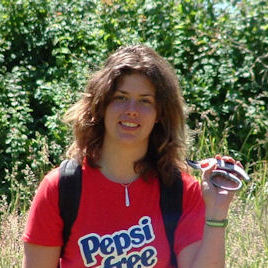 Katie Pagnucco Katie showed that to compete with brood parasitic brown-headed cowbird nestlings, host nestlings mimic the calls of cowbird nestlings, and are thus compelled to behave like "sheep in wolf's clothing". [Pub 2008] |
Fear of the “big bad wolf” dominates the discourse on human-wildlife conflict. Humans fear wolves, and fear wolves “losing their fear” of humans – because if they fear us, they avoid us, and that protects us. Legal protection of wolves has been alleged to permit the emergence of “fearless” wolves. We conducted an unprecedented experiment demonstrating that wolves fully retain their fear of humans, even where they are legally protected. Our results help re-focus the discourse on human-wolf conflict, from ostensibly fearless wolves, to human food subsidies better explaining why fearful wolves ever risk encounters with the human “super predator”.
